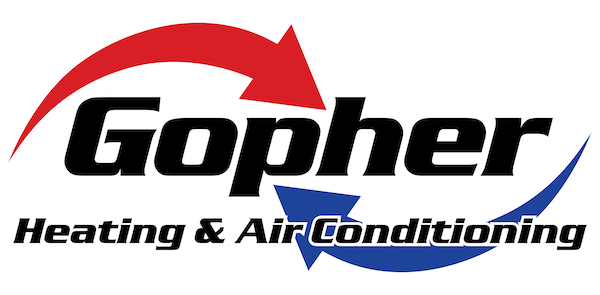Buying your first home is thrilling. You’re probably juggling numerous details about making the right choice. We believe that understanding your future HVAC system is vital. The property’s HVAC system represents a substantial investment and source of potential long-term costs, so being thorough should be a top priority for first-time homebuyers.
In the following guide, we’ll share seven tips for discovering all there is to know about a home’s heating and cooling setup. And if you want a deeper opinion from the experts, consider calling Gopher Heating and Air Conditioning. Our seasoned technicians can help you compare your options with industry insights you won’t find elsewhere.
1. Which Kind of HVAC System Does the Home Use?
Start by identifying what specific HVAC system the home features. Furnaces tend to last longer than air conditioners, and some of the latest types of HVAC systems like heat pumps feature average life spans that are even longer. Getting the details on the make and specific model provides a clear idea of how much maintenance it will require.
2. What Is the Current System’s Age?
It also helps to learn how old the HVAC system is when you’re considering a potential new home. For the most part, HVAC systems tend to run for about 10-12 years. Having the knowledge of when it was installed helps you prepare for any needed servicing or considerations if it might eventually stop working. Older systems may be more vulnerable to problems, so fiscal planning for a replacement unit might be needed faster than expected.
3. Is the Warranty Still in Effect?
Be sure to check the HVAC system is covered by a warranty. If it is, that’s great news because it can lighten the load for maintenance expenses. HVAC warranties typically include parts and labor, but specifics will vary. Review any terms that seem confusing to make sure you fully understand your coverage and the likelihood of out-of-pocket costs.
4. When Was the Last Time It Received Maintenance?
Don’t forget to check the maintenance history of the HVAC system, if that information is accessible. This service history can demonstrate if there have been regular problems or how often maintenance is performed. Ask about records for key tasks like filter changes, which is a positive sign indicating regularly scheduled tune-ups.
5. What Are the Energy Efficiency Ratings?
Purchasing a home with a heating and cooling system with great energy efficiency means lower utility bills and a smaller environmental impact. Look for the seasonal energy efficiency ratio (SEER) ratings for air conditioning as well as the annual fuel utilization efficiency (AFUE) for furnaces. Higher SEER ratings mean better cooling across the entire season, while strong AFUE ratings indicate that the fuel is efficiently converted into useable heat.
6. Can You Spot Trouble After Your Own Inspection?
Even without heating and cooling expertise, you should still examine the HVAC system yourself. Look for potential issues that might have been overlooked. This can mean bizarre noises, unequal airflow and attempts at concealing any obvious damage.
7. Have You Sought Out Expert Advice?
If you’re unsure about the overall state of the HVAC system, it’s beneficial to get a professional opinion from certified HVAC professionals. They are skilled at identifying things you might miss, such as leaks in the refrigerant, damage to the wiring or damaged ductwork.
A Call with Gopher Heating and Air Conditioning Simplifies Your Home-Buying Journey
Selecting your first home ought to be exciting, and Gopher Heating and Air Conditioning will do everything possible to ensure yours is too. Reach out with us at 952-373-0377. We can discuss how our HVAC services help make this process smoother, giving you what you need to make an offer with confidence.



